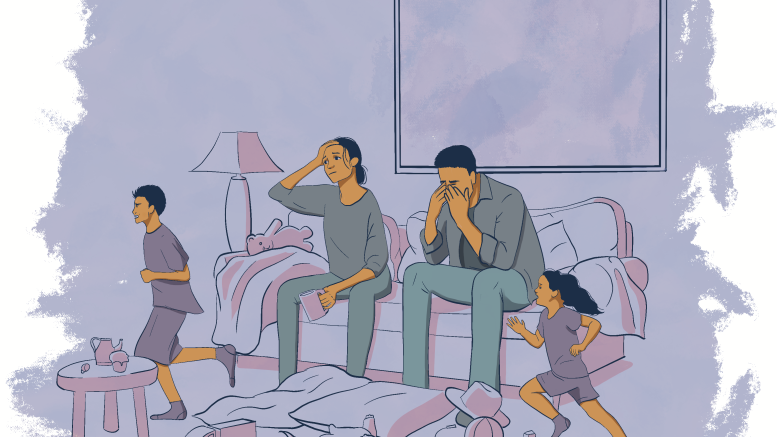Leslie Roos’s research is rooted in the observation of how mental health challenges affect individuals, and in recognizing opportunities to create a positive impact on people’s lives.
“One of the things that I think was most impactful early on was noticing that, when your mental health isn’t where you want it to be or when you’re struggling with mental health, everything else is really hard,” she said.
Roos is an assistant professor in the department of psychology and a research scientist at the Children’s Hospital Research Institute of Manitoba
Her new project, “Advancing Family Wellbeing through a Massive Open Online Intervention: The LightBEAM,” received funding from the Social Sciences and Humanities Research Council in late August.
This project revolves around empowering families in caring for their mental health.
“There’s a lot of really natural things that come up about being a parent that can be tremendously stressful,” Ross said, adding that these things “require a lot of skills and reflection on understanding your own emotional experiences, and how to cope with them and move forward in a way that’s aligned with your values so that you can be living the life you want to live as a parent.”
Recognizing that parenthood comes with a unique set of challenges and joys, Roos aims to provide evidence-based information to assist parents in understanding their emotions and navigating the complexities of family life.
Roos’s project, the LightBEAM, builds on extensive research dating back to 2015 focused on what readily accessible information parents are looking for to help tend to their family’s mental well-being.
With an advisory board composed of parents who have firsthand experience managing mental health challenges, the team developed interactive activities, expert-led videos and suggested resources specifically tailored to address their individual mental health needs and those of their families.
Roos’s work has yielded valuable insights.
“Some of our key learnings have been that people want to have access to evidence-based information, but they need to be able to access it at any time,” she said.
Additionally, Roos pointed out a strong desire among parents to connect with each other and build support networks. She also recognized the importance of both online and in-person resources, encouraging families to seek support within their communities.
Currently, Roos’s approach to the LightBEAM program is through a Massive Open Online Intervention —a web-based portal that individuals can use to access a wealth of information on family mental health.
In an age of information overload, the program seeks to determine what truly aids family well-being based on evidence, and to separate that information from potentially misleading content. Roos added that this data will be available in the top 10 most spoken languages in the country, providing accessible support to families in the province and across Canada.
Roos’s inspiration for the LightBEAM project stems from her personal experiences as a parent and her observations of the challenges faced during the transition to parenthood.
“There are lots of really special things about becoming a parent and about having young kids at home,” she said. Roos believes that while parenthood is filled with hope and excitement, there is a lack of community-based support to mitigate the challenges that arise.
With the LightBEAM, Roos’s goal is to foster a community of health-care practitioners and parents working together to provide the necessary support for families to thrive.
“Coming together as a community of parents, as a community of clinicians to figure out, ‘what do people need to live the lives they want to live, support their families the way that they want to support them and be the parents that they want to be?’ is really inspiring,” she said.
The goal of the LightBEAM project is to develop a range of mental health support options tailored to each family’s needs. Whether through information, peer support or access to therapy, Roos aims to ensure that families receive the support they need efficiently.
“Mental health is something that is relevant for all of us to care for, for ourselves and for the people around us,” she said. “I think there’s also a lot of other ways to approach caring for our mental health outside of that higher acuity clinical context.”
Roos emphasized that there’s no one-size-fits-all approach to parenting and family life.
“There’s lots of wonderful ways to be a parent,” she said.
“We always really want to communicate that to parents and families — that they are the expert in what they need and what their kids need and what their families need.”





